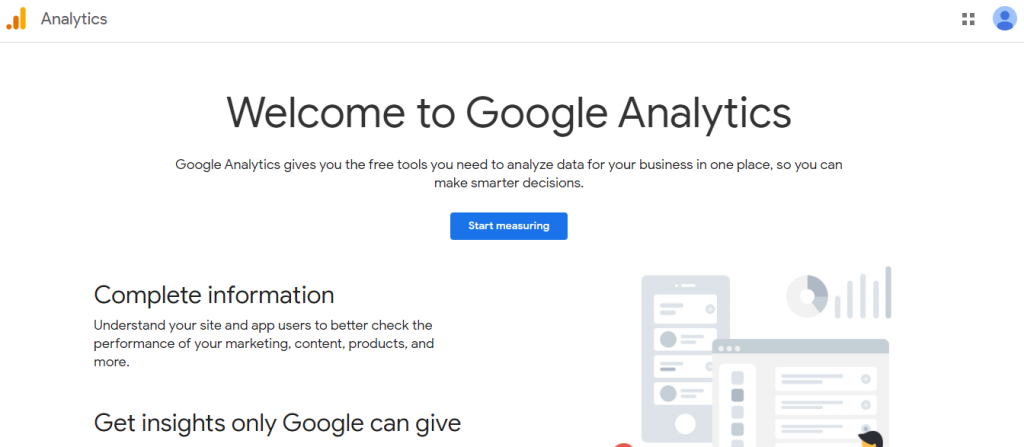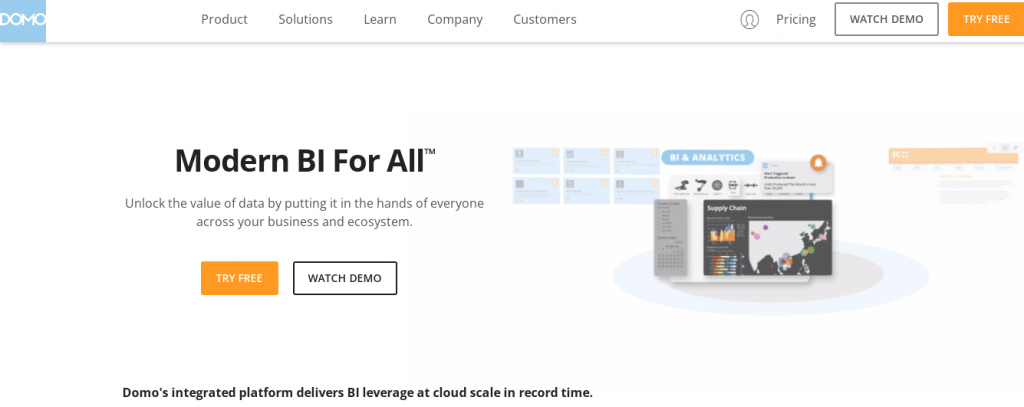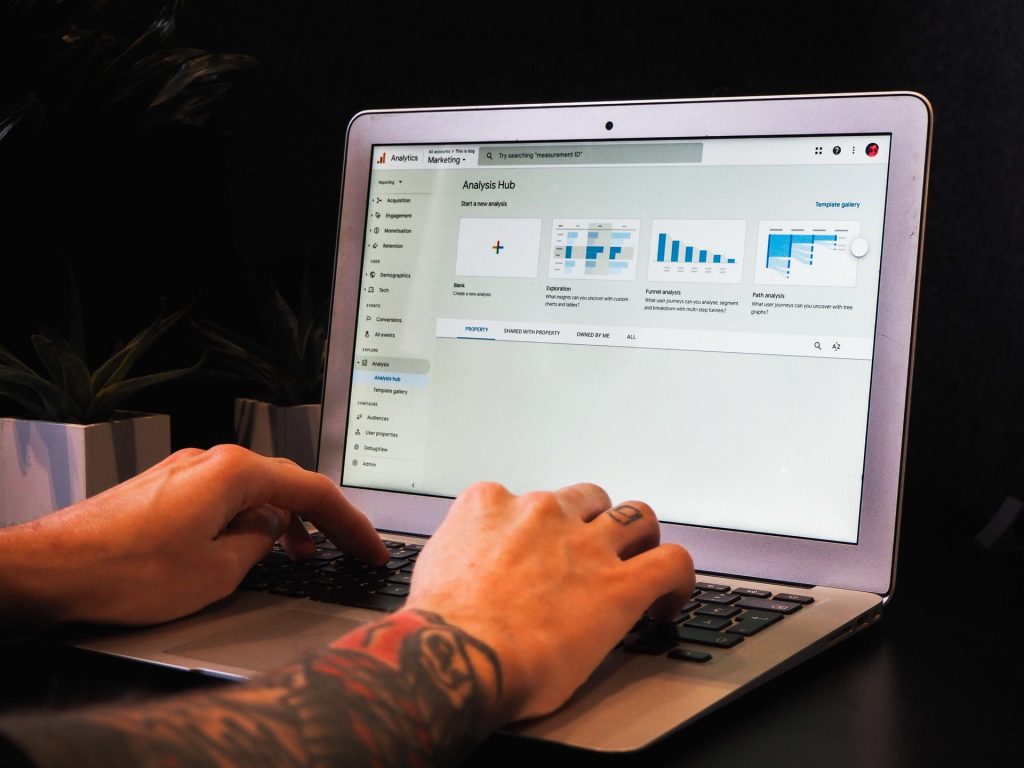We are decisively living in the information age, where technology plays a part in almost every area of our lives. And it is more convenient, highly possible, and accessible to complete many of our old routines online rather than in person. Such as communicating with friends and completing our shopping.
ECommerce stores and online businesses are booming this year. But anyone who has a website or platform that people can visit, learn from, or purchase items through has the world at their fingertips. For as many successful eCommerce websites as there are, owners must have access to high-quality data tracking to comprehend their statistics better.
Google is the most popular search engine, and Google Suite offers many free features like Gmail, Google Drive, and Google Calendar. Google is also the owner of Google Analytics, a widely used data tracking platform ideal for online business owners.
This introduction to Google Analytics for beginners will discuss what essential information you need to know about GA. Also, you can read about the benefits of using the platform to analyze your business. We will hear from top industry professionals on their input regarding Google Analytics.
After reading through, you will walk away with an understanding that allows you to set up the program yourself.
Overview of Google Analytics
As mentioned above, Google Analytics is a platform to track data from all areas of your website or app. GA collects data about everything that happens on your site, then processes the raw data with a JavaScript code before displaying reports to you visually. Business owners find it an essential tool to assess the performance and success of their online business.

“2021 is a technologically focused year as we will continue to be more and more in the future. The beauty of this for business owners is how they can establish their presence online, maybe solely online. Operating only through eCommerce locations and then having a smart platform like Google Analytics generate valuable site data that could never be comprehensively collected before.
Variables like your site’s demographic, the location of visitors, their conversion rate, etc., you can never collect in a store. The closest alternative was to sign guests up for your rewards program. Now, with the knowledge of these fine details that direct your next move, imagine how much more possible it is for businesses to understand their clientele,” says Jay Levitt, Founder, and CEO of Lofta.
A benefit of Google Analytics is how it measures what your site is doing right, your successes, and your necessary areas of improvement. These are the two opposite poles of information on your website. Measured through the data you receive on your users, your pages, and your conversions.
“Google Analytics matters so much and is so widely used because of the importance of the internet to sell products today. Digital marketing, digital advertising, and digital selling are the moves of the present and the future,” says Jared Hines, Head of Operations of Acre Gold.
More information about Google Analytics: it began as the data tracking platform Urchin that offered a new, all in one place option for collecting websites’ data. Google bought the program in 2005 and turned it into Google Analytics.
Google had high expectations for Urchin when they first bought it, and their investment has paid off since an estimated 30-50 million websites use GA to track their data.
Google’s Vice President for Product Management at the time said upon purchasing Urchin, “This technology will be a valuable addition to Google’s suite of advertising and publishing products” (Jonathan Rosenberg, Senior Advisor and Coach at Schmidt Futures).

Google Analytics is free and only requires a Google account. If you already have Gmail, you can use the same information for Analytics. Also, there is an even more advanced version of the program titled Google Analytics 360 that you can pay for to access even more detailed data.
Analytics works because once you’ve signed up for the program, it gives you a tracking code. You can add that code to your site through each page to install cookies, sending hits to GA.
Hits are simply reports sent to Analytics based on data information. They can be about page views, transactions, or actions made by site visitors. Twenty-four hours after setting up your code, you can start collecting your website’s data.
“Google Analytics allows you to collect data through the use of simple coding. When you make an account, you receive a unique website code that you add to your HTML address if you have a website. Or you can even install it as a plugin if your site originates from another platform like WordPress or Wix,” says Fred Gerantabee, Chief Experience Officer of Readers.com.

Google Analytics has been recently criticized for having too much control over information due to its data collecting format. Still, the current CEO of Google since 2015, Sundar Pichai, spoke out to quell the concern.
“For us, privacy is at the heart of what we do. Users come to Google at significant moments, ask us questions. Also, we deal with people’s sensitive information in Gmail, Google Photos, and so on, and so we have to earn their trust. Privacy can not be a luxury good. We need to make sure we serve up services in a way that works for everyone but puts them first and is privacy-enhancing,” said Sundar Pichai, CEO of Google and Alphabet.
It sounds as though Google does not have plans for the data collected through Analytics other than to present it back to website owners in visually appealing graphs. Still, the amount of data running through the program certainly is high.
Data collection pros Domo collected enough information to estimate that 1.7 MB of data is collected globally every second, per person. That’s a lot to process!

The Different Dashboards
Google Analytics provides users with multiple different dashboards to showcase various variables of data. Reports are made from metrics and dimensions. Metrics refer to anything collected in numbers. Such as the number of visitors or the length of time they stay on your site. Dimensions are the attributes of the data.
There is the main overview dashboard or the Google Analytics home page. It provides a general overview of your site and gives you access to all the different charts and data groups. From here, you can navigate to other analysis focuses that are displayed in their dashboards as well.
The Real-Time dashboard gives you real-time information on what is currently happening on your site, like the current traffic.
The Audience dashboard offers insight into all the data concerning your users, such as their demographic, locations, and conversion amounts.

The Acquisition dashboard explores how your visitors reached your website, like if it was through search ranking or backlinks.
The Behavior dashboard gives you insight into user behaviors and is where you find the “Site Content Report,” which evaluates how well your pages are operating.
The Conversion dashboard details everything regarding sales and conversions, such as your lead to conversion rate and which pages are most successful at leading to sales.
Benefits of Google Analytics
There are enormous benefits of Google Analytics for business owners. Firstly, people love how the data is broken into visuals that make the information easier to understand.
“The visual reports on Google Analytics’s dashboards make it simple to identify trends and popularity in one location. Rather than needing to view the data yourself and then convert it into graphs and charts,” says Remon Aziz, Chief Operating Officer of Advantage Rent A Car.
Continuing: “I love Google Analytics for new business owners for the way it conveys advanced statistics like all variables of dimensions and metrics in simple formats. If you are just starting in the business world, you can still understand GA’s data collection and will continue to understand it better as your knowledge grows.”
Google Analytics also offers an open range of flexibility regarding the type of data you want to view and focus on. As long as the data you need is sorted under user-level, hit-level, or session-level scopes, you can collect it.

“One great feature in Google Analytics is the option to create your reports based on the most relevant information for your goals and KPIs. Analytics provides standard default reports based on the organization of your data, but you can also create the targeted reports you want to see,” says Matthew Mundt, Founder, and CEO of Hug Sleep.
Google Analytics provides data for everyone, from the most advanced to the most beginning business professional. Both startups and highly established and successful websites use Analytics because it offers a comprehensive analysis of all accumulated data.
“I appreciate the way that Google Analytics appeals to all versions of the business owner, from the newbie to the seasoned professional who has slowly worked their way to their current position,” says Yuvi Alpert, Founder, and CEO of Noemie.
“It provides basic data even beginners can understand, but it also offers more in-depth and complex data for those looking to view advanced statistics. Basically, the more you can understand the data, the more information you will receive. There is not a limit to how much analysis is available regarding your website.” he states further.
Business owners love Google Analytics for the in-depth research it provides into the consumer. Knowing your target audience goes a long way in your marketing efforts, but receiving data about who your users are and what aspects of your website prove successful at reaching them is valuable.
“With Google Analytics, you can understand your audience more than ever. You craft your brand and marketing around your target audience, but then with GA, you receive information about your site’s visitors’ demographics, where they are shopping from, and what pages they spend the most time on.

You can be adjusting your site based on the information gained each step of the way and then receive reports on whether the changes have brought added success,” says Tri Nguyen, Co-Founder, and CEO of Network Capital.
Another handy feature of GA is the option for benchmarking.
“With the benchmarking feature in Google Analytics, you can compare your data against others in your industry, so you see how your website holds up against your competitors,” says Isaiah Henry, CEO of Seabreeze Management. “When else in history has this kind of information being available to business owners?
Google Analytics is also successful at aiding in your marketing campaign.
“Google Analytics has helped our marketing team build their strategy because it has provided us with areas of data surrounding our target consumers and what they are spending the most time viewing, as well as how they reached our site. We’ve been able to take the data and develop a plan around it,” says Jason Wong, CEO of Building Blocks.
Conclusion
There you have it; comprehensive beginners guide to Google Analytics, including some background on how the platform works, a closer look at the different dashboards available, and a list of the features of Google Analytics that top industry professionals find the most beneficial.
With this starting point of information, you should feel ready to begin your account with Google Analytics and collect your website data.
